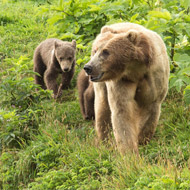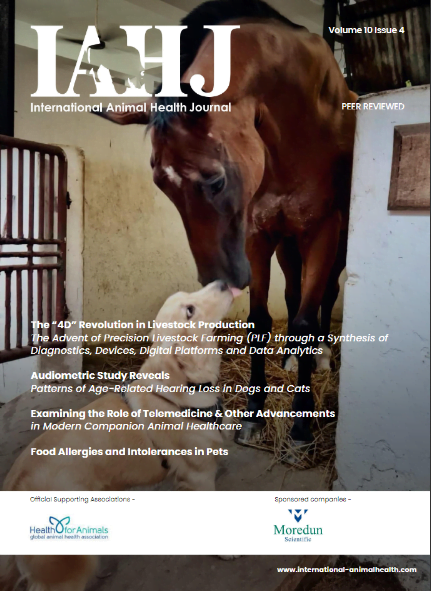Hunting pressure changing the way bears live

Brown bear cubs in Sweden stay longer with their mothers compared to a few decades ago, according to new research.
The study, reported in Nature Communications, found that infants stay by their mother’s side until they are two-and-a-half years old. Researchers say that whilst the size of Sweden’s population remains stable, the pressure from hunting seems to be changing the way bears live.
Although bear hunting is legal in Sweden, they cannot be hunted if they have cubs. Joanie Van de Walle from the University of Sherbrooke, Canada, told BBC News that the longer mothers remain with their cubs, the longer they can evade hunters:
“Because females that care for their cubs longer survive better under the hunting regulation, we say that hunting has a selective effect (it artificially determines which females are going to survive and reproduce based on their reproductive behaviour),” she said.
Decades ago, female bears kept their cubs by their side for around a year and a half, after which they would produce a new litter. But in recent years female behaviour has altered so that they keep their cubs with them for another year.
“Our hypothesis was thus that hunting regulation could favour longer maternal care in this population,” added Joanie Van de Walle. “Therefore, the observed change in female reproductive behaviour could be the result of the increasing hunting pressure in the population.”
Bear cubs spending more time with mothers
Animal Health Media © 2024, All Rights Reserved – Powered by Teksyte











